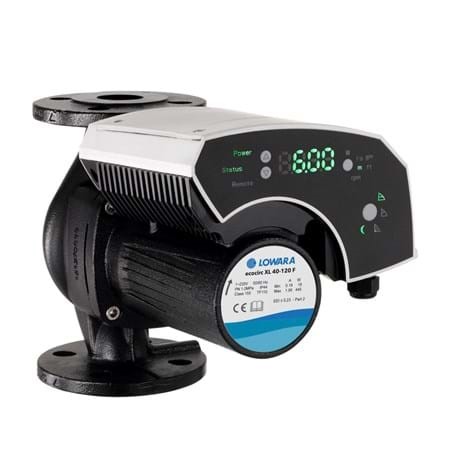There are a lot of different industrial pumps which you could use for your machinery. You might be surprised at just how many different types of pumps there are because there are more than a dozen different models, and each one does something unique. However, you need to pick the right pump for your machinery, and this is harder than it looks – especially when the differences between some of them are very small but impactful.
Choosing the right pump for you means that you’ll need to know what the benefits of industrial pump types are and how they can be incorporated into your system. Choosing the right type of water pumps for you is easy when you know what each one is used for – you can match it up with the type of work you do. Let’s take a look at some of the most common types of industrial water pumps and see how each one can be incorporated into your machinery.
- The Centrifugal Pump
This type of pump is the best choice for anyone who is working with low-viscosity liquids and higher flow rates, and it pairs well with flexible hoses for optimal performance.
- The ANSI Process Pump
This pump uses something called dimensional standardisation. This allows for the design, piping, and foundation of the pump to be completed before the pump supplier is even chosen. It also uses a lot of material types that other pumps don’t have.
- The API Process Pump
This is a safe and reliable pump which meets all the API 610 requirements for pumps that need to work at high pressure and high temp environments.
- The Axial Flow Pump
This pump is the best choice for getting a higher flow rate without a higher head-to-match.
- The Booster Pump
This type of pump lets you build up pressure to move liquids over great distances.
- The Piston Pump
This pump is the best choice for anything that uses abrasive liquids that may damage other pump types.
- The Progressive Cavity Pump
This is often thought of as being the most heavy-duty pump because it can handle liquids other pumps can’t manage.
- The Screw Pump
Out of all the positive displacement pumps, this pump has the highest flow rate.
- The Gear Pump
The gear pump is probably the best choice for any application involving clean oil – it’s got a simple design and not many moving parts. This is a bit like our Lowara Ecocirc M+ 15-6/130 – it’s simple and easy to work with.
- The Lobe Pump
This pump is good for sanitary applications because it pumps liquids which contain fragile solid materials.
- The Diaphragm Pump
This is one of the most versatile choices for a selection of liquids because they can run dry without damaging the pump.
- The Vertical Sump Pump
This is one of the most cost-effective pumps available. Our Lowara Ecocirc L 25-8/130 is also a good choice for cost-effective pumps.
- The Vertical Turbine Pump
The turbine pump is the best choice for anyone working with deep wells.
- The Submersible Pump
The submersible pump is one which is good for areas that flood because it is made to be waterproof and resistant to large amounts of exposure.
- The Self-Priming Pump
This pump is good because it doesn’t need any type of external priming – it primes itself.
- The Multistage Pump
The multistage pump is currently the best way to get a higher pressure with a lower thrust load.
- The Magnetic Drive Pump
This is a safe and secure pump with no mechanical seals, which also doesn’t leak. If you need a reliable pump, we always recommend the Lowara Ecocirc S+ 15-4/130 as a good choice.
- The Horizontal Split Case Pump
One of the pumps which are least likely to cavitate that generates a higher flow rate and performs better than an end suction pump.
Choosing the Right Pump For You
Choosing the right type of pump for you is easy when you know what each one is used for – you can match it up with the type of work you do.
With that being said, there are a lot of pumps, and some of them do similar things, so we could understand if you were confused by them.
Final Thoughts
As we can see, there are a lot of industrial water pumps out there. Choosing what’s best for you is easy. We’re happy to give you some expert advice if you need it, so you’re welcome to get in contact with us if you have questions. We aim to help you get the results you need so feel free to speak to a team member – you’ll need the right pump for you, without doubt.






